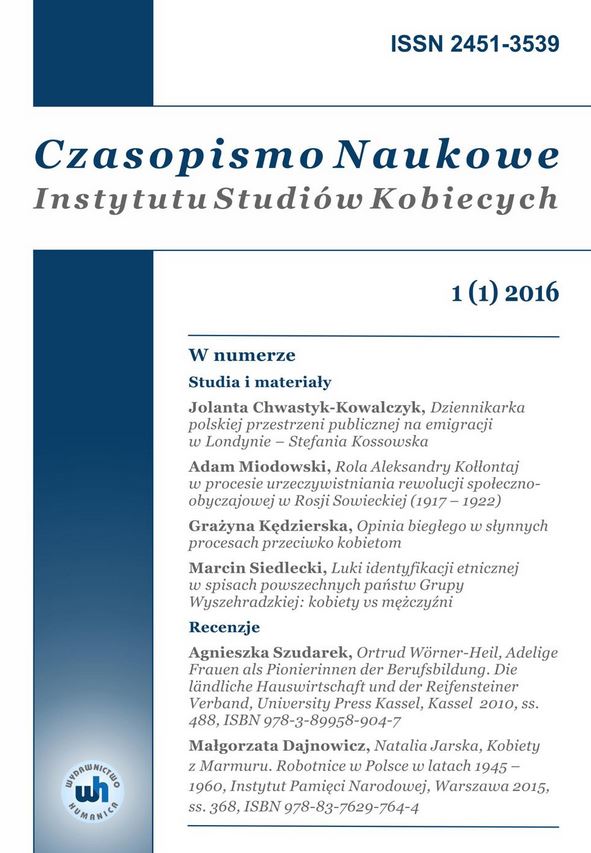Luki identyfikacji etnicznej w spisach powszechnych państw Grupy Wyszehradzkiej: kobiety vs mężczyźni
The ethnic identification gaps in the National Censuses
of the Visegrad Group countries: women vs. men
Author(s): Marcin SiedleckiSubject(s): Social Sciences, Gender Studies, Sociology
Published by: Wydawnictwo HUMANICA Instytut Studiów Kobiecych
Keywords: ETHNIC IDENTIFICATION; 2011 CENSUSES; ETHNIC MINORITY; THE VISEGRAD GROUP
Summary/Abstract: The article presents the results of the 2011 National Censuses in Poland, the Czech Republic, Slovakia and Hungary (V4). These coun-tries have always been part of a single civilization sharing cultural and intellectual values and common roots in diverse religious traditions, which they wish to preserve and further strengthen. The 2011 Censuses of Population and Housing were the first researches performed since V4`s accession to the European Union. Censuses constitute important moments in the life of a nation, as this is when the State asks its citi-zens – among other questions – “What’s your nationality”? In this study the author examines the phenomenon of the ethnic gap identification: 4,95 million citizens of the Visegrad Group who chose not to respond the questions relating to national and ethnic identity. Ethnicity, includ-ing dual ethnicity, was recorded – especially in the Czech Republic – as freely declared by the respondent’s wishes and on a voluntary basis, so a respondent could also refuse to report his or her ethnicity.
Journal: Czasopismo Naukowe Instytutu Studiów Kobiecych
- Issue Year: 2016
- Issue No: 1
- Page Range: 138-152
- Page Count: 15
- Language: Polish

